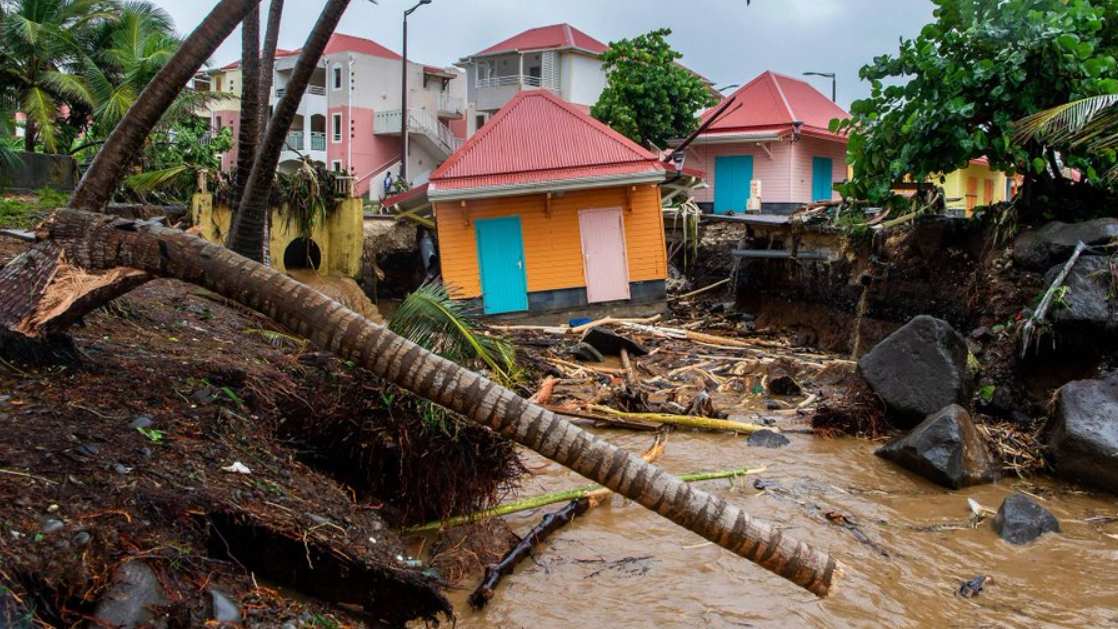Almost one million Puerto Ricans are still struggling with a power outage caused by Hurricane Fiona, according to data collected by tracker PowerOutage.us. The hurricane made landfall on the island on September 17. The power outage has been accompanied by a shortage of potable water, leading to serious public health concerns and fears of a repeat of the scenario after Hurricane Maria, which hit the island in 2017. In the aftermath of Hurricane Maria, the health system collapsed due to a lack of fuel and electricity. According to some estimates, this may have contributed to the death of over 3,000 people.
The US Federal Government made a number of public declarations in response to Fiona, but these have already been criticized for their inadequacy and discriminatory character. A disaster declaration published on September 22 on the website of the Federal Emergency Management Agency (FEMA) has been called out by local organizations and activists for not extending full support to all communities in Puerto Rico, with areas populated mostly by Black and poor people getting left out.
The @JoeBiden disaster declaration for #FionaPR bizarrely excludes Loíza, the island's one overwhelmingly Black municipality, despite widespread destruction from Fiona there. The five 90+% white municipalities are included. #climatejusticehttps://t.co/745Z86uENo pic.twitter.com/7bkTVpn0NZ
— Brad Johnson (@climatebrad) September 22, 2022
A day before this disaster declaration was published, the US Department of Health and Human Services (HSS) Secretary Xavier Becerra declared a public health emergency in Puerto Rico, sending two teams – comprising 15 and 10 members – to assist the health response. The HSS also stated that health authorities in Puerto Rico are keeping track of Medicare patients relying on medical equipment which is dependent on electricity to make sure they have access to the care they need.
Many are afraid that the lack of an adequate response to the hurricane could lead to the same problems experienced by the health system in 2017, as no structural improvements have been made since then. The lack of available funds for healthcare in Puerto Rico is predominantly linked to US colonial policies, which leave the island extremely little space to shape a health system based on its own needs and priorities.
Instead, Puerto Rico’s health system has been weakened by public budget cuts and privatization. This has led to long waiting lists for even pressing procedures, as reported by CBS, and an erosion of health workers’ rights. Low salaries and bad working conditions continue to cause mass emigration of health workers from Puerto Rico, leaving few nurses, doctors, and other health workers to provide care.
Weak health infrastructure is leading to significantly worse health outcomes than in the US, including higher rates of preterm births, asthma, diabetes, and HIV/AIDS. Yet it is the decisions made in the US that are making the health system in Puerto Rico, and the people relying on it, particularly vulnerable to the effects of extreme weather. This includes the exclusion of Puerto Rico from the application of the Affordable Care Act, as well as the prolonged delays in the distribution of hurricane relief aid by the Trump administration, which meant that hospitals in some areas of the island were not rebuilt for more than three years after Maria.
In this context, after Maria and Fiona alike, the bulk of the response depends on the efforts of volunteers and organizations such as Taller Salud, who are collecting water, filters, and medical supplies to deliver to those affected by the hurricane.
El tercer sector dice presente con respuesta comunitaria tras el desastre del huracán Fiona
Lee el artículo completo aquí: https://t.co/vOzshhSTuZ#TallerSalud #ComunidadYLiderazgo #HuracánFiona #TercerSector #ElNuevoDia #RecuperacionJusta pic.twitter.com/p0qRLejlne
— Taller Salud (@tsalud) September 22, 2022
People’s Health Dispatch is a fortnightly bulletin published by the People’s Health Movement and Peoples Dispatch. For more articles and subscription to People’s Health Dispatch, click here.





